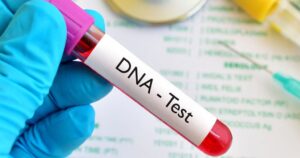In the digital era, DNA testing has become a vital tool in resolving complex family matters, especially in parenting disputes. From paternity questions to custody battles, DNA tests provide clarity, certainty, and a foundation for making informed legal decisions. But what exactly are DNA tests, how are they conducted, and why are they becoming increasingly significant in modern parenting disputes?
What Are DNA Tests?
DNA tests involve the analysis of an individual’s genetic material, known as deoxyribonucleic acid (DNA), which is unique to each person. Every individual inherits half of their DNA from their biological mother and the other half from their biological father. By comparing specific DNA markers between individuals, relationships such as parentage, sibling connections, or extended family ties can be conclusively established.
How Are DNA Tests Done?
DNA testing is a simple and non-invasive procedure. Typically, a sample is collected from the inside of the cheek using a cotton swab (also known as a buccal swab). This sample is then sent to a specialized laboratory where the DNA is extracted and analyzed. The testing process looks for specific genetic markers to determine whether there is a match between two individuals’ DNA. For example, in a paternity test, the child’s DNA is compared with that of the alleged father. The results are highly accurate, often with over 99.99% certainty in paternity tests.
The entire process usually takes a few days to a couple of weeks, depending on the complexity and the urgency of the request.

Why Are DNA Tests Important in Parenting Disputes?
In modern parenting disputes, especially those involving questions of custody, child support, or inheritance, DNA tests have become crucial. They provide irrefutable scientific evidence of biological relationships, which can settle debates over parentage and ensure the right individuals take responsibility for a child.
Family courts often require DNA testing when the biological parentage is disputed. A confirmed result can impact legal decisions regarding child support obligations, custody arrangements, visitation rights, and medical decision-making. It ensures that children receive financial and emotional support from their rightful parents and helps protect the legal rights of all involved parties.
As co-parenting, blended families, and non-traditional family structures become more common, DNA tests offer clarity, providing solid legal backing to uphold parental responsibilities. In a world where family dynamics are constantly evolving, DNA testing has become an invaluable tool in promoting fairness, truth, and stability in parenting disputes.
In Kenya, DNA testing has become increasingly accessible as more labs and clinics across the country offer this service. To begin the process, individuals seeking a DNA test can visit certified medical centers or laboratories that provide DNA testing services. Most facilities require the individuals being tested to be physically present for sample collection. However, some labs offer home testing kits that can be sent back to the lab for analysis, providing more convenience and privacy.
The most common type of DNA test in Kenya is the paternity test. The procedure is straightforward: samples are collected using a buccal swab from the inside of the cheek. This method is painless and non-invasive. Once the samples are taken from the individuals involved, they are sent to the lab, where the DNA is extracted, and analysis is conducted to determine if there is a genetic match between the parent and the child. The results are typically available within a few days, although some facilities offer expedited services for quicker turnaround times.
Costs for DNA testing in Kenya vary depending on the facility and the type of test being conducted. On average, a standard paternity test may range between Ksh 10,000 and Ksh 30,000, depending on the urgency and the complexity of the test. It is important to ensure that the facility conducting the test is accredited by relevant authorities like the Kenya Medical Practitioners and Dentists Council (KMPDC) to ensure accuracy and reliability of the results. In legal disputes, DNA tests must often be conducted by certified labs to be admissible in court, making it crucial to select an accredited institution.